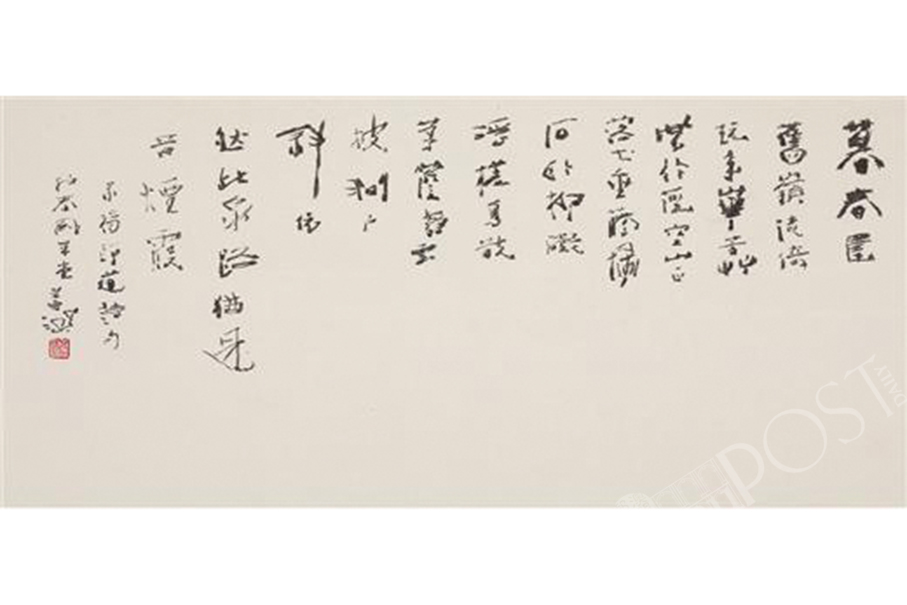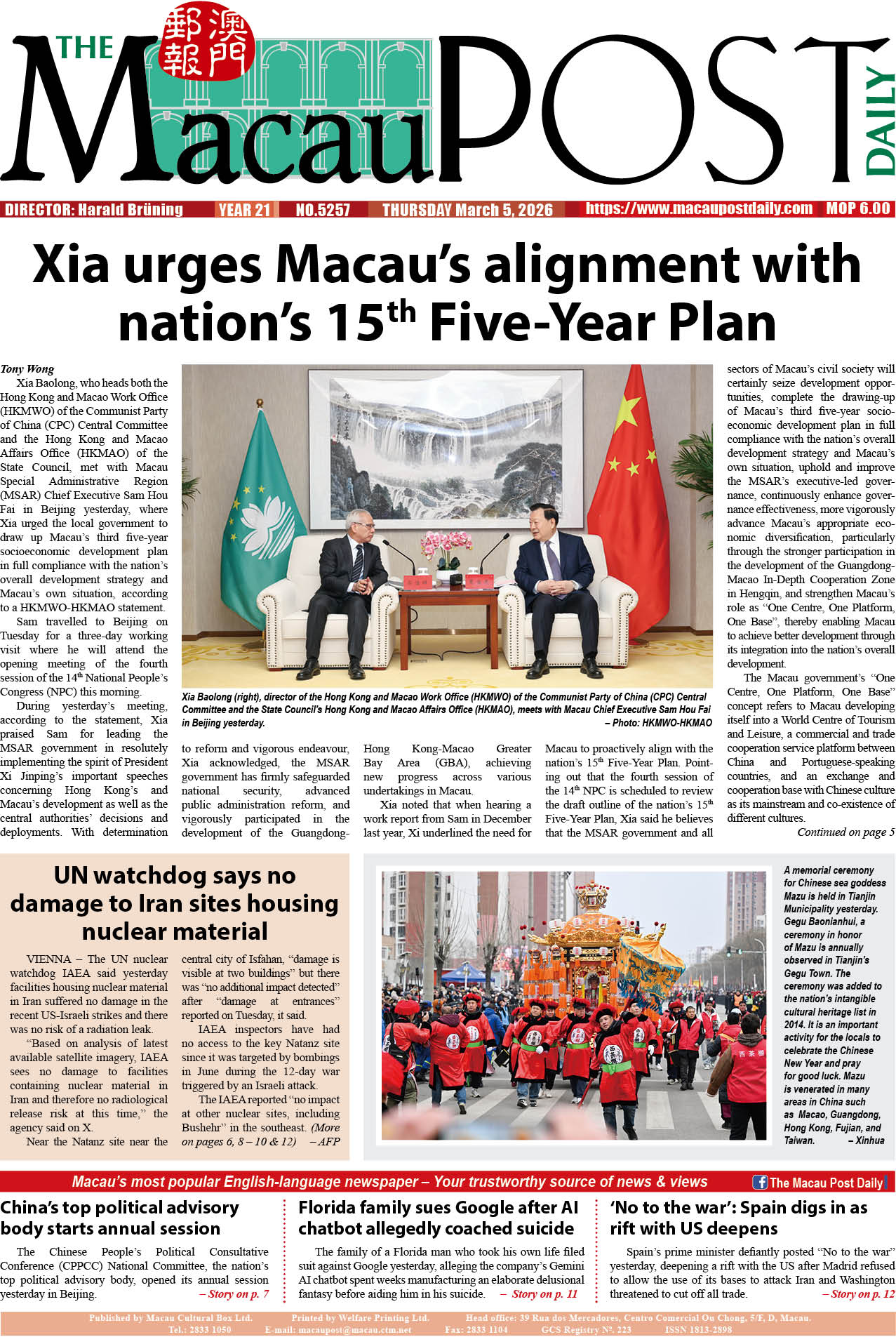A local scholar urged the government yesterday to learn its lesson from the aftermath of deadly Typhoon Hato which slammed Macau on Wednesday, improve residents’ awareness of disaster prevention and amend its regulations on the installation of windows.
Hato killed 10 people in Macau, some of whom were drowned in car parks and shop basements due to severe flooding caused by a storm surge that coincided with the typhoon. Hato was the strongest typhoon to hammer the city since 1964, officials said.
Speaking to reporters at the University of Macau (UM), Alfred Wong Seng Fat, an assistant professor at the Department of Electromechanical Engineering of the public university’s Faculty of Science and Technology (FST), said that, generally speaking, all car parks should have drainage systems linked to the sewers.
“[Many] Macau people believe that Macau is a ‘blessed land’ where almost no natural disasters happen,” Wong said. He made the remarks in a joint interview requested by The Macau Post Daily and Ponto Final.
According to the “blessed land” folk belief, Macau has traditionally been protected by three tutelary divinities – Kun Iam (Guanyin), A-Ma (Mazu) and Mary.
Wong, honorary chairman of the Macau Institution of Engineers, noted that the government has been upgrading the city’s sewerage system, adding that, however, “the city has developed so fast that the population and the number of buildings have increased [drastically]… Is it possible for the sewers to deal with so much water?”
Wong also said that in order to prevent the sewers from being blocked, the government ought to remind residents to remove bulky items from underground car parks before the arrival of a typhoon, adding the government also needed to develop residents’ awareness of disaster prevention.
Moreover, Hato damaged the windows of numerous high-rise buildings, especially those located near the waterfront. In some of buildings, almost all the windows were damaged by the super-typhoon.
Wong pointed out that the higher a building is the lower its wind resistance is, adding that the windows of buildings near the sea are easily damaged by a typhoon.
Asked by a reporter if the windows were damaged because they were poorly installed, Wong said that Macau has certain rules to regulate construction materials and their installation, adding that, however, the regulations may not be suitable for the situation nowadays.
“The government should act according to circumstances,” Wong, said. “It’s illogical to demand the installation standards of windows for a five-storey building be the same as those for a high-rise building”
Wong urged the government to amend its building construction regulations, namely those concerning windows in accordance with a building’s height and location, which were enacted before the establishment of the Macau Special Administrative Region (MSAR) in 1999.
Meanwhile, many residents said they had felt their buildings swaying during Hato’s onslaught. Wong said as some local buildings had typhoon-resistance features, it was normal for them to sway during a storm, as long as the movement is not so extreme that it would affect the structure of the building.
Alfred Wong Seng Fat, assistant professor of the Department of Electromechanical Engineering of the University of Macau’s (UM) Faculty of Science and Technology (FST), poses yesterday at his office on the UM Hengqin campus. Photo: Debby Seng








